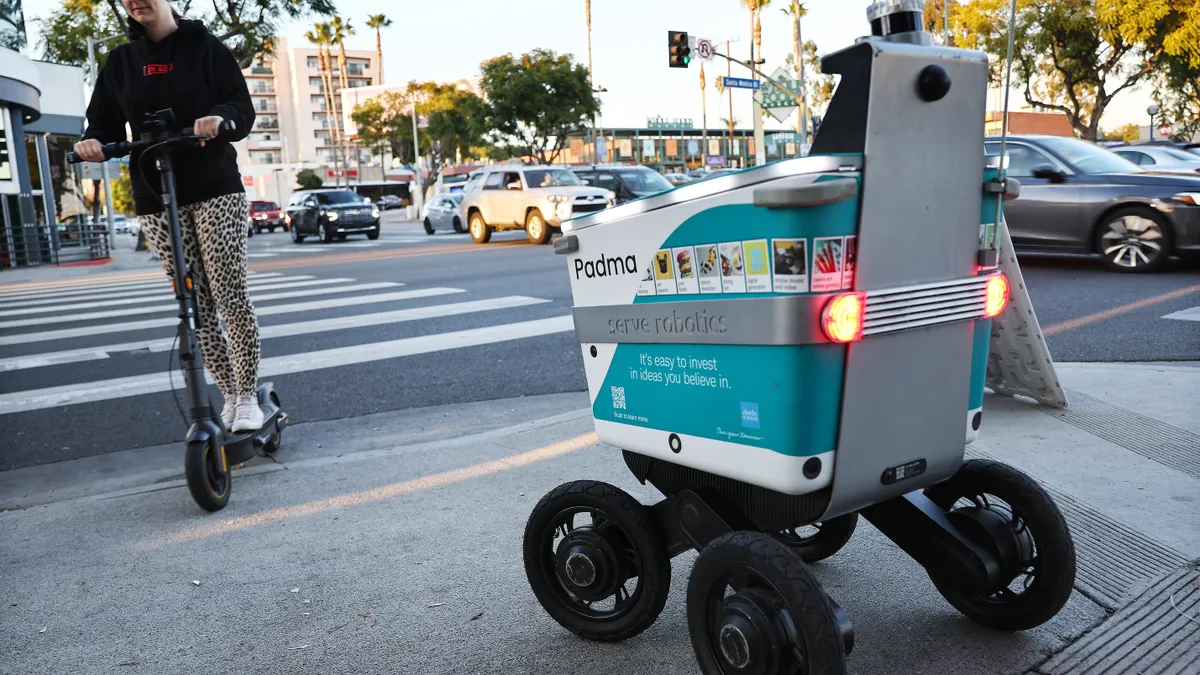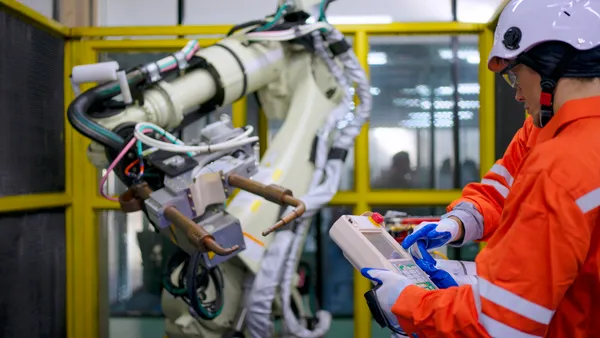Using robots at hotels and restaurants to close labor gaps could backfire and prompt more hospitality workers to quit, including front-line employees and managers, according to a Washington State University study published in the International Journal of Contemporary Hospitality Management.
Workers with “robot-phobia,” or a fear that robots will take human jobs, had higher insecurity, stress and intention to leave their jobs. In fact, among employees who had experience working with robotic technology, the effects were even stronger.
“The turnover rate in the hospitality industry ranks among the highest across all nonfarm sectors, so this is an issue that companies need to take seriously,” study author Bamboo Chen, a researcher at WSU’s School of Hospitality Business Management, said in a statement. “For everyone, regardless of their position or sector, robot-phobia has a real impact.”
The food service and lodging industries were hit hard by the COVID-19 pandemic, with many businesses still struggling to recover and find enough workers. In April 2024, the accommodation workforce was still 9.2% below the level seen in February 2020, according to U.S. Bureau of Labor Statistics data. For some employers, the labor gap has sparked interest in robotic technology, but employees may not be on board.
In the study, researchers surveyed 321 lodging employees and 308 food service workers across the U.S. about their jobs and attitudes toward workplace “robots,” which included human-like robot servers, automated robotic arms, tabletop devices and self-service kiosks.
Overall, workers with fears around being replaced by a robot were more likely to feel stressed and more likely to leave. Those who viewed robots as capable and efficient also ranked higher in turnover intentions.
These feelings could cause a negative feedback loop and exacerbate the labor shortage in the hospitality industry, the study authors wrote. Chen recommended that employers communicate the benefits and limits of new technology to their workers, as well as emphasize the important human role that their workers play in the company.
“When you’re introducing a new technology, make sure not to focus just on how good or efficient it will be,” he said. “Instead, focus on how people and the technology can work together.”
Robots in the workplace could contribute to employee burnout and workplace incivility, according to an American Psychological Association study. However, most people are overestimating the capabilities of robots and underestimating their own capabilities, researchers said, so employers can help lessen their workers’ fears by encouraging them to think positively about themselves and their uniquely human qualities.
The turnover issue in restaurants, especially, is severe — even modulated by the pandemic and recent retention gains. About 54% of quick service restaurant employees worked 90 days before quitting in 2022, according to an HourWork report. Workers were five times more likely to quit over miscommunications with management during their first 90 days and listed wages, management and scheduling as top concerns.
Hotel workers also aren’t staying silent about their working conditions. In recent months, thousands of U.S. hotel workers have staged protests at major brands, including Marriott, Hyatt and Hilton, calling for changes before union contracts expire this year. Hospitality employees — including room attendants, dishwashers and facilities workers — want hotels to reverse pandemic-era changes in staffing and to raise wages.












